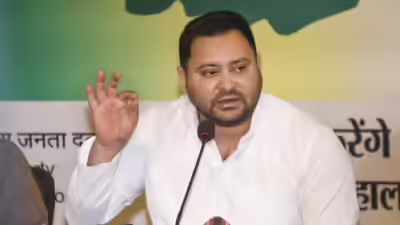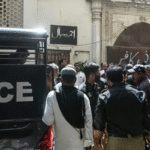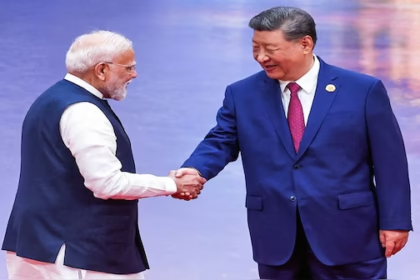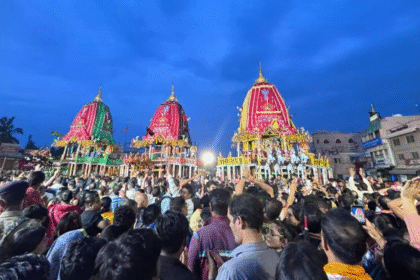Tejashwi Yadav Blames PM Modi for Voter List Revision in Bihar, Alleges Conspiracy to Strip Voting Rights
Historical Parallels and Political Mobilisation in Bihar’s Electoral Past
Bihar has long been a crucible of democratic contestation, marked by powerful electoral movements, caste-based mobilisations, and struggles for representation. To understand the current uproar surrounding voter disenfranchisement, it is instructive to revisit the state’s electoral history, where battles for inclusion have often mirrored India’s larger democratic journey.
During the post-independence years, Bihar’s political landscape was defined by the dominance of the Congress Party, with limited representation for backward castes and marginalised communities. This imbalance began to shift during the 1970s and 1980s, with the rise of leaders like Karpoori Thakur and later, Lalu Prasad Yadav—who foregrounded social justice and electoral inclusion.
The Mandal Commission implementation in the early 1990s was a turning point, mobilising a new generation of voters who had previously been excluded from both political and administrative decision-making. Tejashwi Yadav’s current campaign echoes the legacy of that era—tapping into the same undercurrents of empowerment and identity politics that shaped Bihar’s transformation.
However, unlike earlier movements that focused on bringing people into the democratic fold, the present crisis revolves around defending hard-earned gains. The fear is not of being denied a voice—but of having an existing voice erased.
In fact, this moment is reminiscent of the mass disenfranchisement controversies that emerged during the NRC (National Register of Citizens) exercise in Assam, where large numbers of legitimate residents were arbitrarily excluded from citizenship lists. Civil rights activists argue that Bihar is witnessing a softer yet similar variant—one that hides behind technological procedures and bureaucratic opacity.
Historically, electoral roll cleansing has often been weaponised to influence outcomes. In the 2005 Bihar elections, for instance, targeted deletions of voter names in select constituencies were reported, especially in areas dominated by Yadav, Muslim, and Dalit voters. The Election Commission eventually launched an inquiry, but by then, the damage had been done.
Tejashwi Yadav and his party seem to be drawing from these precedents to fuel a grassroots mobilisation. In recent weeks, the RJD has launched a “Matdata Bachao Yatra” (Save the Voter Campaign), which aims to build awareness about voter rights and create pressure on the administration through people’s movements.
This campaign, heavily publicised through WhatsApp forwards, local TV spots, and folk performances, invokes historical parallels to galvanise emotional as well as political support. It reminds voters of past sacrifices made during the JP Movement (1974-75) and Emergency era (1975-77), when democracy itself was under siege.
The Yatra has gained traction, especially among rural youth and first-time voters who view the issue through a generational lens: not merely as a matter of identity, but of opportunity, rights, and future.
Meanwhile, political observers suggest that the RJD’s mobilisation strategy is not just reactive but preemptive—setting the tone for Bihar’s upcoming state elections. With alliances between RJD, Congress, and Left parties taking shape, voter disenfranchisement is becoming a unifying theme capable of stitching together disparate vote banks.
Digital Democracy or Data Discrimination? The Technology Debate Behind Electoral Clean-ups
As the debate around voter disenfranchisement in Bihar intensifies, the spotlight is increasingly turning toward the digital systems powering the electoral cleanup. Technology, once hailed as a great enabler of democracy, is now at the center of a growing controversy: is it safeguarding voter integrity—or silently excluding the very citizens it was meant to empower?
At the heart of this debate is the Aadhaar-Voter ID linkage initiative, launched under the guise of eliminating duplicate and bogus entries. The Election Commission has partnered with the Unique Identification Authority of India (UIDAI) to cross-reference entries in the voter rolls with Aadhaar data. In theory, this is designed to ensure that each voter has a single, verified identity.
However, ground-level reports suggest a darker reality. Thousands of voters across Bihar have complained of being deleted from rolls without notification or explanation. These deletions are often flagged as “duplicate” entries, yet there is no clear recourse or communication for affected citizens. Worse still, many of the deletions have occurred in low-income, minority, and backward caste areas.

Digital exclusion, experts argue, is not merely a technical glitch—it is a policy failure. The reliance on biometric and algorithmic verification assumes uniform access to technology and literacy, which is far from the case in large parts of rural Bihar. For instance, if a person’s fingerprint fails to authenticate during Aadhaar verification, they could lose not just their voter status, but access to public distribution systems as well.
Moreover, the back-end algorithms used for data deduplication are opaque, proprietary, and not subject to public or legal scrutiny. Critics point out that unlike manual deletions in the past—where a voter could appeal directly to a local booth officer—today’s deletions are automated, invisible, and irreversible without intense bureaucratic effort.
In several districts, civil rights groups have reported discrepancies in the deletion lists: for example, two individuals with similar names and birth years being marked as the same person and struck off the rolls. In other cases, people who moved between districts for work have been erased from both lists due to mismatched addresses.
Tejashwi Yadav’s campaign has taken up this digital dimension as a core issue. At a rally in Madhubani, he remarked, “They are not deleting voters—they are deleting identities. Through computers, not ballots.” His team is now working with tech activists to compile digital affidavits from affected voters, with plans to challenge the algorithmic protocols in court.
The broader fear is that India’s transition to e-governance is outpacing its regulatory safeguards. While the Digital India campaign promotes Aadhaar as the backbone of citizen services, there is still no data protection law in force. This leaves voters vulnerable to errors, misuse, and even political manipulation.
The Election Commission has promised a grievance redressal portal and helpline, but anecdotal evidence suggests these systems are under-resourced and often unresponsive. In some blocks, voters reportedly queued for hours at voter facilitation centers, only to be turned away due to server failures or untrained staff.
Ultimately, the question is whether digital systems can ever truly replace human accountability in matters as sensitive as the right to vote. For Bihar’s disenfranchised, the answer seems to be unfolding painfully in real time.
The next chapter in this unfolding saga may well determine how India negotiates the fine balance between efficiency and equity in its electoral processes.
Resistance and Resilience—Voices from the Ground Fighting for Electoral Justice
While the battle over disenfranchisement plays out in political and legal arenas, a quieter revolution is emerging at the grassroots. In towns, villages, and urban settlements across Bihar, a growing number of citizens are refusing to remain passive victims of electoral deletion—they are organizing, resisting, and reclaiming their democratic space.
Grassroots civil society organisations have launched helplines, field camps, and awareness drives to help disenfranchised citizens understand the process of re-enrolment. One such initiative, “Matdata Suraksha Abhiyan,” run by a coalition of retired government officers, lawyers, and student volunteers, has already assisted over 17,000 voters in restoring their names to the electoral roll.
In Motihari, a widowed schoolteacher named Sunita Devi became the unlikely face of the movement when she filed a writ petition in the Patna High Court after her name was removed from the rolls. “My vote is my voice,” she said to local media. “I may be poor, but I am not powerless.” Her case, now widely cited in local mobilisations, has spurred dozens of similar legal challenges.
Young lawyers and law students, particularly from Patna University and Chanakya National Law University, have volunteered their time to provide free legal aid to affected families. Their work goes beyond documentation—they are hosting legal literacy workshops, demystifying forms, and translating Election Commission notifications into local dialects.
Meanwhile, women’s self-help groups and anganwadi networks have quietly taken on the role of democratic watchdogs. In areas where male literacy and mobility are limited, these women-led collectives are verifying local voter rolls door to door. They also notify booth-level officers of anomalies, often becoming the first line of defense against bureaucratic erasure.
Tejashwi Yadav’s campaign, too, is being reshaped by these community-led efforts. The RJD has partnered with several local NGOs to set up “Voter Help Counters” in rural haats and district headquarters. These counters serve not just as information kiosks but also as rallying points for political mobilisation.
Religious institutions and community centers have stepped up as well. Mosques and temples in some districts now broadcast daily reminders about voter verification through loudspeakers. Priests and imams have been roped into spreading awareness, turning places of faith into arenas of civic empowerment.
Importantly, these actions are not merely reactive. They are building long-term democratic capacity from the ground up. People are learning the language of rights, demanding transparency in governance, and refusing to accept administrative lapses as destiny.
The resilience of Bihar’s electorate, especially among its most marginalised, is an enduring lesson in democracy’s bottom-up strength. As local poet and social worker Rafiq Ansari told a gathering in Darbhanga, “The Constitution lives not just in Delhi’s courts but in our courage to be counted.
Also Read : 13 Soldiers Killed in Pakistan: Full Report on Military Convoy Suicide Bombing








